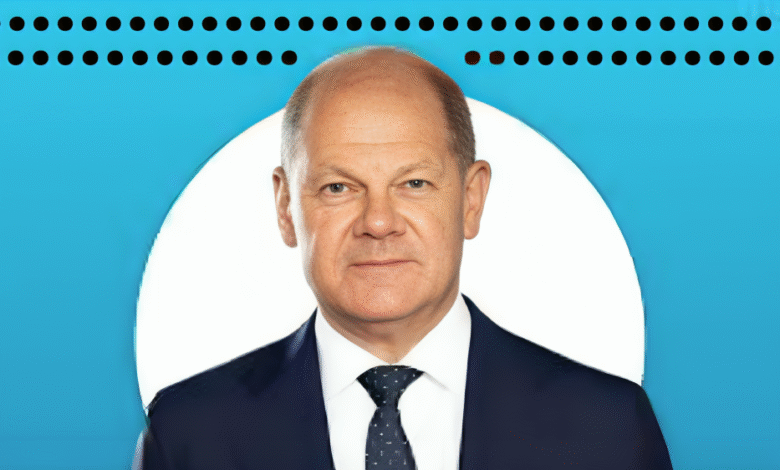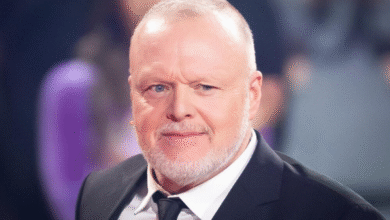Understanding the Olaf Scholz Schlaganfall Facts, Impact, and Recovery

The term Olaf Scholz Schlaganfall has sparked widespread curiosity and concern across Germany and beyond. As the former German Chancellor and a prominent figure in the Social Democratic Party (SPD), Olaf Scholz has been a pivotal leader in shaping modern German politics. However, rumors and reports about a potential stroke—referred to as “Schlaganfall” in German—have raised questions about his health, political career, and the broader implications for Germany. This article dives deep into the topic, separating fact from fiction, exploring the medical nuances of a stroke, and reflecting on the political and societal ramifications, all while maintaining an optimistic outlook on recovery and resilience.
Who Is Olaf Scholz?
Olaf Scholz, born on June 14, 1958, in Osnabrück, is a seasoned politician who served as Germany’s Chancellor from December 2021 to May 2025. A dedicated member of the SPD, Scholz’s career is marked by a commitment to social justice and economic stability. Before his chancellorship, he held significant roles, including First Mayor of Hamburg (2011–2018), Federal Minister of Finance (2018–2021), and Vice-Chancellor under Angela Merkel’s government. His pragmatic leadership style earned him the nickname “Scholzomat” for his calm, methodical approach, though he’s also shown a feistier side when defending his policies.
Scholz’s tenure as Chancellor was notable for navigating Germany through turbulent times, including the Ukraine crisis and economic challenges. His “Zeitenwende” (turning point) speech in 2022, announcing a historic shift in German defense policy, remains a defining moment. However, the buzz around Olaf Scholz Schlaganfall has shifted attention to his personal health, prompting a closer look at how such an event could affect a leader of his stature.
What Is a Schlaganfall
A “Schlaganfall,” or stroke, is a medical emergency that occurs when blood flow to a part of the brain is disrupted, leading to potential brain damage. It’s a serious condition, but with prompt treatment and rehabilitation, many individuals recover significantly. Understanding the medical aspects of a stroke is crucial when discussing Olaf Scholz Schlaganfall
Types of Stroke
- Ischemic Stroke: Caused by a blockage in a blood vessel supplying the brain, accounting for about 80% of strokes in Germany.
- Hemorrhagic Stroke: Occurs when a blood vessel in the brain bursts, leading to bleeding and pressure on brain tissue.
- Transient Ischemic Attack (TIA): Often called a “mini-stroke,” it’s a temporary blockage with no lasting damage but serves as a warning sign.
Symptoms to Watch For
- Sudden weakness or numbness on one side of the body
- Difficulty speaking or understanding speech
- Vision problems in one or both eyes
- Severe headache with no apparent cause
- Loss of balance or coordination
According to the German Stroke Association, strokes are the third leading cause of death in Germany, affecting thousands annually. However, advancements in medical care have improved outcomes, with many patients regaining independence through rehabilitation.
The Rumors Surrounding Olaf Scholz Schlaganfall
The phrase Olaf Scholz Schlaganfall gained traction due to unverified reports and social media speculation about the former Chancellor’s health. Some sources, like WhatsMind and techsparkle.de, claimed Scholz suffered a stroke, suggesting it occurred around late 2024 or early 2025, with dates often left vague or marked as “[date of incident].” These reports described a sudden medical emergency requiring hospitalization, with initial assessments indicating a “light stroke” and a stable condition.
However, other sources, such as vistatimes.de, clarified that no confirmed medical reports substantiate these claims. Instead, rumors may have stemmed from a 2023 incident where Scholz appeared with an eye patch after a jogging accident, sparking wild speculation about a stroke. The German government quickly dismissed these rumors, stating Scholz had merely sustained a minor injury. This incident highlights how public figures like Scholz are under constant scrutiny, where even a bruise can fuel dramatic narratives.
Why Do Such Rumors Spread?
- High Public Profile: As a former Chancellor, Scholz’s every move is analyzed, and minor health changes can spark exaggerated stories.
- Media Amplification: Sensational headlines and social media memes, like those about Scholz’s “pirate look,” can distort facts.
- Political Motives: Opponents may exploit health rumors to question a leader’s capability, especially during election periods.
- Public Curiosity: People are naturally drawn to dramatic news, especially about prominent figures.
Despite the lack of evidence, the Olaf Scholz Schlaganfall rumors underscore the need for reliable information and the dangers of misinformation in the digital age.
Medical Response and Recovery from a Stroke
If the Olaf Scholz Schlaganfall reports were true, swift medical intervention would have been critical. Modern stroke treatment in Germany is highly advanced, with protocols designed to minimize damage and promote recovery.
Immediate Response
- Hospitalization: Patients are rushed to specialized stroke units, like those at Universitätsklinikum Schleswig-Holstein, where Scholz’s brother Jens serves as CEO.
- Diagnostics: Imaging tests like CT or MRI scans identify the stroke type and affected brain areas.
- Treatment:
- For ischemic strokes, clot-dissolving drugs (thrombolytics) or mechanical clot removal may be used.
- Hemorrhagic strokes may require surgery to stop bleeding.
- Monitoring: Patients are closely observed in intensive care to stabilize their condition.
Rehabilitation Process
Recovery from a stroke varies by individual but often includes:
- Physical Therapy: To regain strength and mobility.
- Speech Therapy: To address communication difficulties.
- Occupational Therapy: To relearn daily tasks.
- Psychological Support: To manage emotional challenges like depression or anxiety.
Germany’s healthcare system, one of the best in Europe, ensures access to top-tier rehabilitation facilities. Optimistically, many stroke survivors, even public figures under stress, return to active lives with proper care. For Scholz, a hypothetical stroke would likely involve a tailored recovery plan, leveraging his access to elite medical resources.
Political Implications of Olaf Scholz Schlaganfall
The Olaf Scholz Schlaganfall rumors, whether true or not, have sparked discussions about political stability in Germany. Scholz’s chancellorship ended in May 2025, with Friedrich Merz of the CDU succeeding him after a snap election. A health crisis during or after his tenure could have ripple effects.
Immediate Political Impact
- Leadership Vacuum: A Chancellor’s temporary absence could lead to uncertainty, with deputies stepping in to maintain governance.
- Coalition Dynamics: Scholz’s coalition (SPD, Greens, FDP) faced internal strife, and a health issue could have exacerbated tensions, as seen in the coalition’s collapse in November 2024.
- Public Perception: Voters might sympathize with a recovering leader or question their ability to govern, influencing election outcomes.
Long-Term Effects
- SPD’s Future: The SPD, already struggling in polls behind the CDU and AfD, might face challenges redefining its leadership post-Scholz.
- Policy Continuity: Scholz’s initiatives, like the Zeitenwende or climate policies, could face delays if leadership transitions are mishandled.
- European Stability: As a key EU figure, Scholz’s health could affect Germany’s role in critical EU decisions on climate, defense, and migration.
Despite these concerns, Germany’s robust democratic institutions ensure continuity. The optimistic view is that the nation’s political system is resilient, capable of weathering such challenges with grace.
Public and Political Reactions to the Rumors
When the Olaf Scholz Schlaganfall rumors surfaced, reactions were mixed but predominantly supportive. Federal President Frank-Walter Steinmeier reportedly expressed solidarity, stating, “In difficult times, the strength of a community is revealed. We stand together and wish Olaf Scholz all the best for his recovery.” Other politicians across parties echoed similar sentiments, emphasizing unity.
However, opposition voices, particularly from the AfD and some CDU members, used the rumors to question governmental stability. Media coverage varied, with outlets like tagesschau.de focusing on factual reporting, while others leaned into speculative narratives. This contrast highlights the media’s role in shaping public perception and the importance of critical thinking when consuming news.
The Human Side of Political Leadership
The Olaf Scholz Schlaganfall narrative reminds us that politicians, despite their power, are human. Scholz, known for his steady demeanor, has faced immense pressure—from managing Germany’s response to the Ukraine war to navigating economic challenges. Such stress can take a toll, making health discussions relevant.
Stress and Health in Politics
- High Stakes: Leaders face relentless scrutiny and decision-making pressure.
- Long Hours: Politicians often work grueling schedules, impacting physical and mental health.
- Public Expectations: The demand to appear infallible can discourage transparency about health issues.
Scholz, by all accounts, maintains a healthy lifestyle, with regular exercise and a balanced diet. His resilience in the face of rumors—whether about a stroke or a jogging mishap—shows a commitment to staying grounded. This humanizes him, reminding us that even leaders need care and support.
Lessons from the Olaf Scholz Schlaganfall Rumors
The Olaf Scholz Schlaganfall saga offers valuable lessons for society:
- Combat Misinformation: Verify sources before sharing health-related news about public figures.
- Promote Health Awareness: Recognize stroke symptoms and seek immediate help, as early intervention saves lives.
- Support Recovery: Encourage a culture of empathy for those recovering from health setbacks, including leaders.
- Strengthen Resilience: Trust in democratic systems to handle leadership transitions smoothly.
By focusing on facts and fostering optimism, we can move beyond rumors to support both individuals and the nation’s stability.
A Look Ahead: Olaf Scholz’s Legacy and Health
As of September 2025, Olaf Scholz remains a significant figure in German politics, serving in the Bundestag after his chancellorship. Whether or not the Olaf Scholz Schlaganfall rumors hold any truth, his legacy as a leader who steered Germany through crises endures. His calm, pragmatic approach and dedication to social democracy continue to inspire.
If Scholz faced a health challenge, his recovery would likely reflect his characteristic determination. Germany’s healthcare system, combined with his personal resolve, positions him well for a strong comeback. The nation, too, looks forward with hope, confident in its ability to navigate uncertainties while honoring leaders like Scholz.
Key Takeaways
| Aspect | Details |
|---|---|
| Who Is Olaf Scholz? | Former Chancellor (2021–2025), SPD leader, known for Zeitenwende and pragmatic governance. |
| What Is a Schlaganfall? | A stroke, caused by disrupted brain blood flow, treatable with prompt care. |
| Rumors | Unverified claims of a stroke in 2024–2025, possibly sparked by a jogging injury. |
| Medical Response | Germany’s advanced healthcare ensures rapid stroke treatment and rehabilitation. |
| Political Impact | Potential leadership gaps but mitigated by strong democratic systems. |
| Public Reaction | Supportive, with some opposition speculation; media plays a key role. |
| Lessons | Combat misinformation, promote health awareness, and support recovery. |
Conclusion
The Olaf Scholz Schlaganfall narrative, whether rooted in fact or fiction, has sparked a broader conversation about health, leadership, and resilience. While rumors may swirl, the focus should remain on verified information and the incredible advancements in stroke treatment that offer hope for recovery. Olaf Scholz, with his storied career and unwavering dedication, exemplifies the strength to overcome challenges—be they political or personal. As Germany moves forward, let’s embrace an optimistic outlook, trusting in the nation’s ability to thrive and in Scholz’s enduring contribution to its future.



